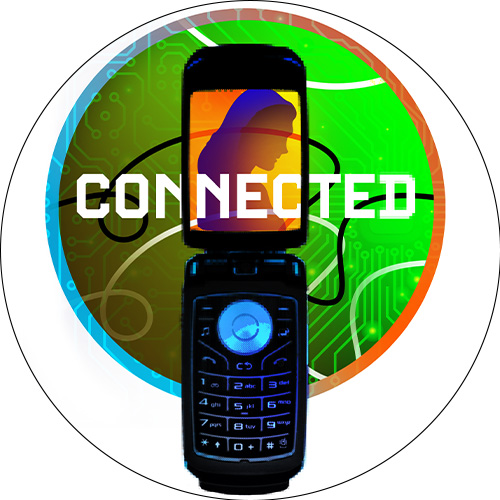Connected: Chapter 1 of 6

The odds are stacked against me — against all of us — to the point that we are not fighting a fair fight

A Chronicle of Tech Change
The Challenge
After the Nekadesh event last June, I decided to switch from a smartphone to a dumb phone, curious to see how it would affect my tech habits and my life.
I shared this decision with quite a few of my friends and acquaintances, and after they all expressed interest in hearing more, I decided I’d chronicle the first few weeks.
The Background
I think I’m a pretty good test subject, fairly average as things go. I’m a middle-age woman with a moderate size family, kids ranging in age from about ten years old to adult. I live in Passaic; not the center of the frum world, but not in the boondocks either. I work in the local high school part time as head mechaneches and hashkafah teacher; it’s not the most high-stress job out there, but certainly one that keeps me busy.
What does make me different is that I’ve done extensive research about technology use and its effects on users for my book, Tech Talk. I wrote Tech Talk about seven years ago, at a time when the conversations about the impact of technology on the frum community were just beginning. The secular world was coming out with preliminary research about how technology was affecting society and the individual, and I wanted to explore that information as it would relate to a frum eved Hashem.
The Experiment
I knew turning the spotlight on myself and my own tech habits while making the switch to a flip phone would be interesting, because with my background, I’d likely be more able than most to see and understand what was really going on.
It’s been a year since I started tracking my development. My experiment continues — but more about that later. Here’s how it all started.
Counterintuitive as it may sound, I went to the Nekadesh event because I didn’t want to go.
I’m old enough to recognize that a pattern of fierce resistance is usually the source of a genuine growth opportunity. And I really felt resistant.
Like many people, I don’t like being put into a one-size-fits-all category, and an event for thousands will not leave much room for individual approaches. I also notice that technology is becoming what tzniyus used to be (still is?) — a sort of black-and-blue-mark topic. It’s hard to mention it without offending someone on some level, and it elicits everything from confusion to defensiveness to a feeling of being misunderstood and labeled.
Or is it just me who feels that way every time tech is mentioned?
The truth is that I’ve been thinking about technology for a while. It’s hard for me not to. I have the unique distinction of having written a book about how tech usage affects frum life. The story of the philosopher defending his uncouth behavior with the analogy that a math professor isn’t a triangle could have described me.
No, I am not and I was never addicted (by the standard classifications of the word). No, I never did Bad Things with my phone or computer. I’m just a normal person living a normal life. My children have been known to ask me to stop texting when I speak to them because they don’t think I’m listening (no comment). I spend too much time on my laptop doing nothing of real import. Inappropriate reading or viewing material popping up is par for the course, but I’ve been rationalizing it as just an inevitable occupational hazard of shopping online, much as you can’t drive through the city without seeing billboards.
Because of my research, I can clearly see how these things affect me, my family, and my avodas Hashem.
I also know it’s not entirely my fault.
I used to think that if I could just be stricter with myself — more disciplined with use, more careful about filters, more determined in my behavior — I would be okay. Then I would try, fail, and end up right back with the same initial kabbalos and eventually the same patterns.
The missing piece was the realization that the odds are stacked against me — against all of us — to the point that we are not fighting a fair fight. These sites and apps were designed by the best and brightest in the field to be compelling and addictive. I don’t stand a chance when coming up against designers who are being paid millions to get us hooked by hacking into our human physiological urges and psychological drives. It doesn’t matter how much I know and how well intended I am. And yet… something has always held me back from actually doing something about it. I continued to feel that if I just found the right amount of willpower, or the right combination of resolutions, I could master my technology habits.
There is real work to be done and I feel like the conversation — still! — gets hijacked by the polarizing views of “all tech is completely assur” and “all tech is fine; just be an adult about it.” I find myself wondering where all the people like me are — adults who are fully aware that this isn’t working for them, and yet need to find a way to live with tech in their lives.
I’m not ready to renounce the Internet. I’ve been known to wax poetic about how much I love the Internet. And yet I realize that my attitude until now has been slightly defeatist. I’ve been waving the white flag of surrender before even seeking any alternative.
The Nekadesh event helped me realize that I’ve been engaging in bedieved, but distorting it to l’chatchilah as a defense mechanism for not being able to do better. I’m not in a position to get all tech out of my house, so I’ve convinced myself that it’s okay. After all, I’m so aware of the issues, and I educate my family accordingly. I told myself that as long as I set guidelines (No phone while the kids are home! No more than a half hour of browsing in one session!), it’s fine.
But time and time again, my intentions remained just that. And I’m self-aware and honest enough to admit that the incredibly subtle effects of excessive materialism, non-Jewish culture, and general distraction were winning. It was time to step things up.
So as a first step, I am trying to switch my iPhone to a basic phone. I have so many questions: How I am going to Uber? Won’t this just cause me to be on my laptop that much more? Is this too dramatic and unsustainable? Would I be better off being “real” with who I am and where I am up to and making more realistic changes? What if an email comes in announcing that my kid’s school is canceled and I don’t get it because I won’t have email on my phone?
I also know the technology topic is so huge and that overfocusing on a smartphone versus a dumb phone can cause people to miss the boat. But I need someplace to start, and this is where I am now. I’m wondering if any of our readers find themselves here with me?
To be continued…
(Originally featured in Mishpacha, Issue 978)
Oops! We could not locate your form.


